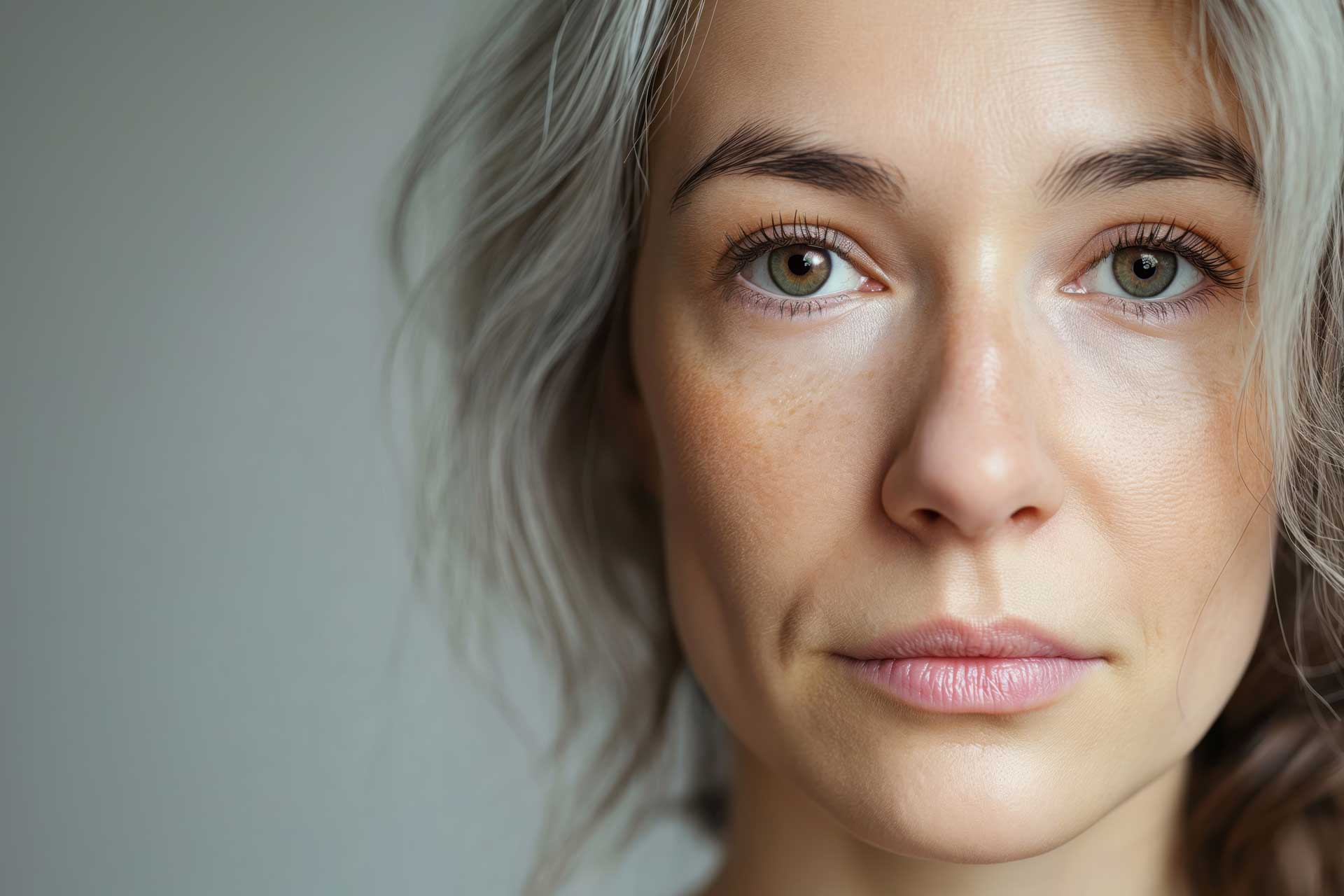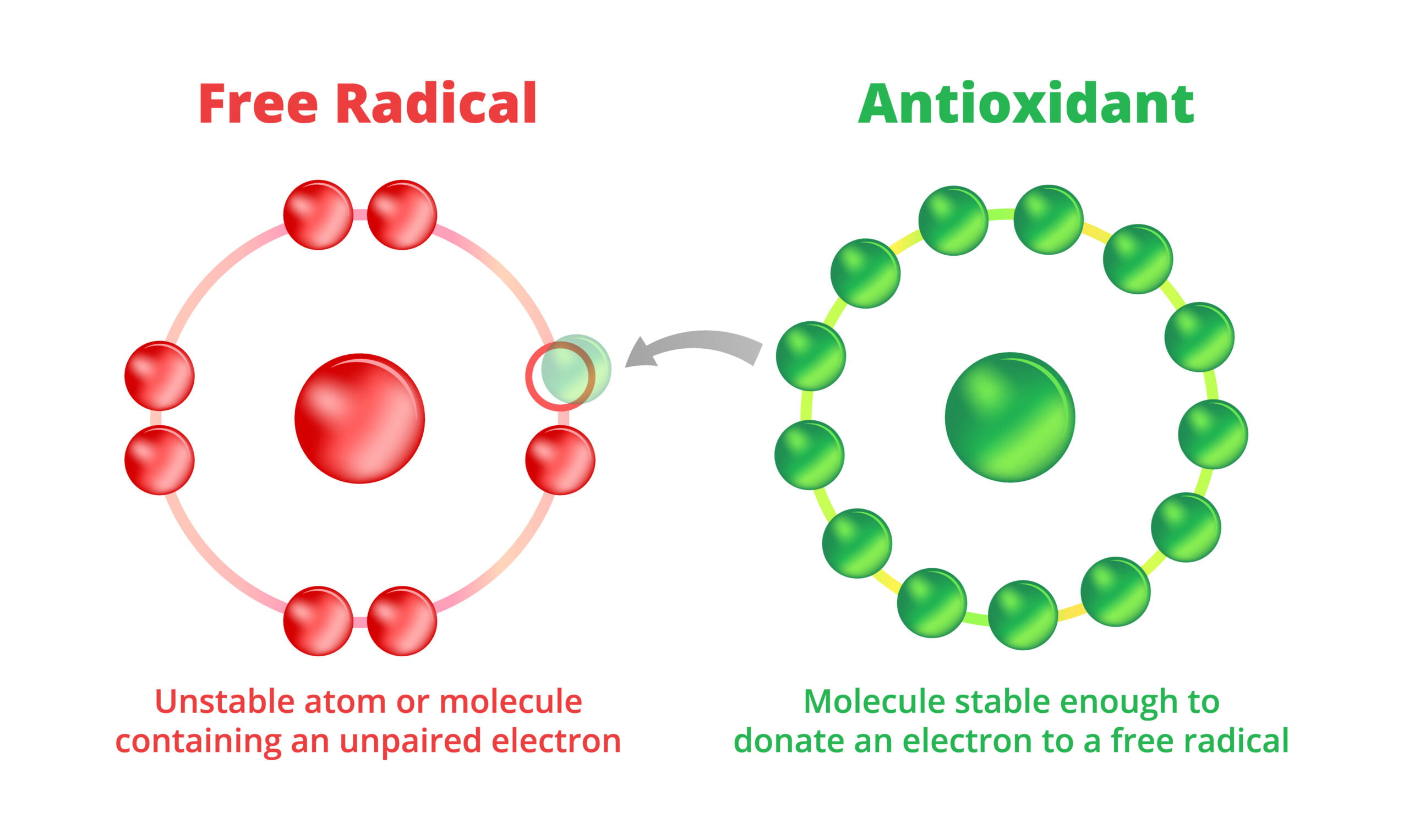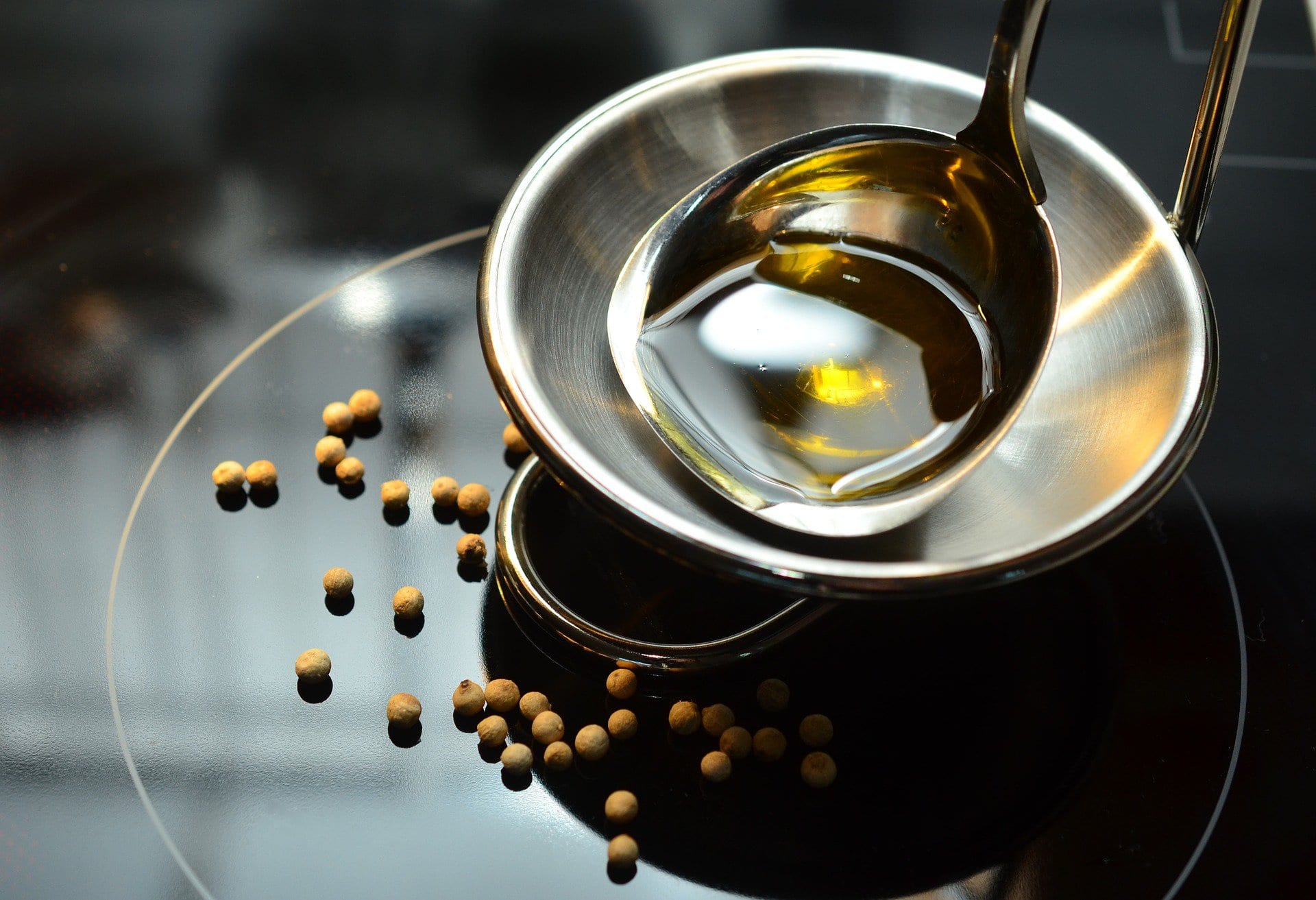Vitamin E, known for its powerful antioxidant effect, plays a crucial role in fighting ageing and promoting overall health. This essential, fat-soluble nutrient not only protects cells from free radical damage, but also strengthens the immune system and improves skin and eye health, making it a valuable ally in maintaining youth and well-being.
In the context of ageing, vitamin E is especially valued for its ability to mitigate the visible and invisible effects of ageing. From reducing the appearance of wrinkles and fine lines to preventing age-associated chronic diseases such as heart disease and cognitive decline, vitamin E offers a comprehensive defence against many age-related health challenges.
This article will explore in detail the role and benefits of vitamin E, how to effectively incorporate it into your diet and the precautions that should be considered to maximise its positive effects and avoid complications. The information provided is intended as a guide for those seeking to not only extend their longevity but also improve their quality of life as they age.
Contenidos / Contents
What is vitamin E?
Vitamin E is a fat-soluble compound that includes eight different isotypes: four tocopherols and four tocotrienols. Each of these isotypes has its own unique characteristics and benefits, but in general, vitamin E is known for its potent antioxidant action.
Sources of vitamin E
Vitamin E is found naturally in a variety of foods, mainly in vegetable oils such as olive oil, sunflower oil, wheat germ oil and canola oil. Other good sources include nuts and seeds, such as almonds and sunflowers, and to a lesser extent in green leafy vegetables and some fruits such as avocado and kiwi.
Understanding the function and sources of vitamin E is the first step in integrating this important nutrient into your diet effectively, which can have a significant impact on preventing ageing and improving overall health.

Benefits of vitamin E in the face of ageing
Vitamin E offers multiple benefits that can help counteract the effects of ageing in both physical and functional aspects. Here we explore some of the most significant:
- Skin protection: Vitamin E is crucial for maintaining the integrity of the skin, helping to prevent damage caused by exposure to UV rays. This can result in less appearance of wrinkles and fine lines, and skin that remains more elastic and healthy over time.
- Cardiovascular health: One of the most important benefits of vitamin E is its ability to improve cardiovascular health. By preventing the oxidation of LDL cholesterol, it helps reduce the risk of atherosclerosis, which is vital for preventing conditions such as heart attacks and strokes.
- Brain function: Vitamin E plays an important role in protection against cognitive degeneration. Adequate vitamin E intake is associated with a lower risk of developing neurodegenerative diseases such as Alzheimer’s and other forms of dementia.
- Immune system health: The strength of the immune system often declines with age, but vitamin E can help maintain a robust immune system, crucial for protecting the body from infection and disease.
- Eye health: Vitamin E contributes to the prevention of age-related eye diseases, such as macular degeneration and cataract.
These benefits make vitamin E an essential component of any nutrition strategy aimed at combating the signs of ageing and maintaining good health as you age. Incorporating vitamin E-rich foods or considering supplementation under medical supervision can be an excellent way to take advantage of these benefits.
Fuentes de vitamina E
Para aprovechar los beneficios de la vitamina E en la lucha contra el envejecimiento y mejorar la salud general, es importante conocer y consumir alimentos ricos en este nutriente. La vitamina E se encuentra principalmente en una variedad de alimentos vegetales y algunos productos animales. Aquí detallamos las principales fuentes:
- Aceites vegetales: Los aceites como el de aceite de oliva virgen extra, germen de trigo, girasol, almendra y avellana son algunas de las fuentes más ricas en vitamina E. Usar estos aceites en ensaladas o para cocinar a bajas temperaturas puede ser una excelente manera de aumentar la ingesta de vitamina E.
- Frutos secos y semillas: Alimentos como las almendras, nueces, semillas de girasol y piñones contienen cantidades significativas de vitamina E. Incorporar estos alimentos en su dieta diaria, ya sea como snacks, en ensaladas o en platos principales, es una forma práctica de obtener este antioxidante esencial.
- Verduras de hoja verde: Las verduras como la espinaca, acelga y el kale también aportan vitamina E, además de una variedad de otros nutrientes importantes.
- Frutas: Algunas frutas como el kiwi, mango y aguacate son fuentes moderadas de vitamina E y pueden complementar la ingesta obtenida de otras fuentes.
- Productos de origen animal: Aunque en menor medida, algunos productos animales como el yema de huevo también contienen vitamina E.
Incluir una variedad de estas fuentes en su dieta no solo ayudará a mejorar los niveles de vitamina E, sino que también contribuirá a una alimentación más equilibrada y saludable.

Intake recommendations
To maximise the benefits of vitamin E and support overall wellbeing, it is essential to follow appropriate intake recommendations. Here we provide detailed guidance on how much vitamin E you should consume, depending on your age, gender and other specific needs.
- Recommended daily allowance: The recommended daily intake (RDA) of vitamin E varies according to age and gender. For adults, the generally recommended RDI is approximately 15 milligrams of alpha-tocopherol per day, which is the most active form of vitamin E in the human body.
- Pregnant or breastfeeding women: Pregnant or breastfeeding women may need a slightly higher amount, around 19 milligrams per day, to support their additional needs and those of their baby.
- Children and adolescents: Children also have specific requirements that vary by age. For example, children aged 1-3 years need approximately 6 milligrams per day, while adolescents need about 11 milligrams per day.
- Older people: As people age, their ability to absorb vitamins may decrease, so maintaining an adequate intake of vitamin E is crucial to protect against cellular ageing and maintain strong immune functions.
Tips for optimising vitamin E absorption
- Include sources of healthy fat in your diet: Vitamin E is fat-soluble, which means that its absorption is most effective when consumed alongside sources of fat. Adding a little olive oil to leafy green vegetables or having a handful of nuts with fruit can help improve vitamin E absorption.
- Variety in the diet: Consuming a wide variety of foods rich in vitamin E is the best way to ensure an adequate intake of all forms of vitamin E and other antioxidants that can work together to improve overall health.
By following these recommendations, you can ensure you get enough vitamin E to take advantage of its antioxidant and ageing-supporting benefits, while maintaining a healthy balance in your diet.
Precautions and advice
Although vitamin E is crucial for health and offers many benefits, especially in terms of anti-ageing, it is important to be aware of some precautions when increasing your intake, either through diet or supplementation.
Potential toxicity and side effects
- Excessive consumption: Although rare, consuming vitamin E in very high doses can lead to complications such as bleeding due to its anticoagulant effect. The recommended upper daily intake for adults is approximately 1,000 milligrams (1,500 IU) of alpha-tocopherol per day.
- Symptoms of toxicity: Symptoms of vitamin E toxicity may include nausea, diarrhoea, headaches, fatigue and blurred vision, as well as an increased risk of bleeding.
Drug interactions
- Anticoagulant medications: Vitamin E may enhance the effect of anticoagulant medications such as warfarin, increasing the risk of bleeding. If you are taking this type of medication, it is essential to consult a healthcare professional before modifying your vitamin E intake.
- Other medications: It may also interact with cholesterol-lowering drugs and some cancer treatments. Medical supervision is crucial to avoid adverse interactions.
Health conditions requiring special attention
- Vitamin K: People with vitamin K deficiency or problems with blood clotting should be particularly cautious, as vitamin E may exacerbate these problems.
- Surgeries: If you are scheduled for surgery, it is advisable to reduce your vitamin E intake to the recommended daily doses or less, as high doses can increase the risk of bleeding during and after surgery.
By taking these precautions and tips into account, you can ensure that your use of vitamin E is safe and effective, taking advantage of its antioxidant and protective benefits without additional health risks.
Current research and studies
Vitamin E has been the subject of numerous scientific studies seeking to understand its impact on human health, especially with regard to ageing and the prevention of chronic diseases. These studies are critical in providing a solid evidence base for how vitamin E can be used effectively in medicine and nutrition.
Research continues to explore other potential benefits of vitamin E, including its impact on cancer, liver health and inflammatory diseases such as arthritis. These studies are crucial to discover new therapeutic applications and to better understand how this vitamin can be used to improve human health in a holistic way.
Conclusion
Throughout this article, we have explored vitamin E from multiple perspectives, highlighting its importance as a powerful antioxidant and its role in promoting overall health and well-being. It is clear that vitamin E is a valuable ally in the fight against ageing, offering significant benefits including protection against oxidative damage, improving cardiovascular and skin health, and preventing cognitive degeneration.
Summary of key points
- Vitamin E acts primarily as an antioxidant, helping to protect cells against free radical damage and prevent chronic diseases associated with ageing.
- It is essential for cardiovascular health, helping to prevent the oxidation of LDL cholesterol which can lead to heart disease.
- It plays a crucial role in skin protection and eye health, reducing the impact of ageing and promoting the longevity of these vital functions.
- The benefits of vitamin E on cognitive function and the immune system demonstrate its role in preserving quality of life as people age.
Motivation for readers
- Considering vitamin E as part of a proactive approach to managing ageing is highly recommended. Integrating rich sources of vitamin E into your daily diet, such as vegetable oils, nuts, seeds and green leafy vegetables, can help ensure adequate intake of this essential nutrient.
- For those who may have difficulty obtaining enough vitamin E through diet, consulting with a health professional about the possibility of supplementation may be a prudent step. It is important to do so in an informed and safe manner, considering recommended doses and avoiding excesses that can lead to adverse effects.
In conclusion, vitamin E is not just another supplement on the shelf; it is a vital part of a healthy lifestyle that supports longevity and improves quality of life. By understanding and applying knowledge about vitamin E, individuals can take meaningful steps towards maintaining their health as they age, backed by current science and research.











